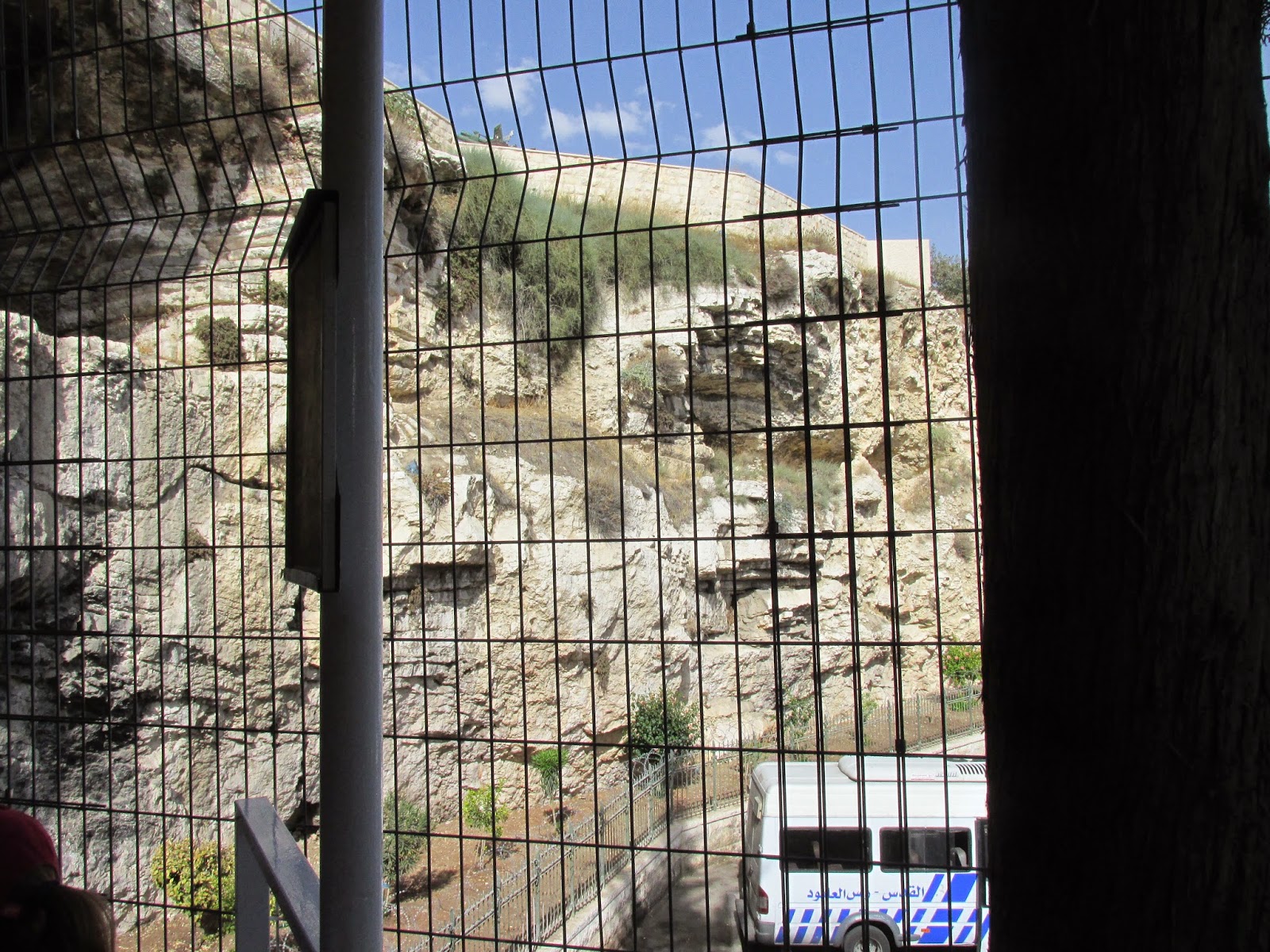Last Wednesday was our last field study in Jerusalem! The first place that we headed was
the Temple Mount. Before we go to the
Dome of the Rock, we talked about the different courtyards that would have been
in the temple complex. As we were standing in front
of the Dome of the Rock, we got oriented to what it would have looked like in
Jesus’ day. Where we were standing, just east of the
Dome, was where the sacrificial altar would have been. Solomon’s Portico, which is talked about in
John 10, is still on the eastern edge! Looking
beyond Solomon’s Portico, we saw the Mount of Olives.
The Al-Aqsa mosque and the Dome of the Rock (just a shrine!) were built in 690, and the mosque was rebuilt in 1930 after an earthquake that caused it to fall. The mosque is also the third most holy Muslim site. There’s an indentation in the Dome of the Rock that could be where the Ark of the Covenant was in the actual temple! Of course we couldn't go inside to see it though!
Dome of the Rock.
Solomon's Portico, and beyond that..the Mount of Olives!
The Al-Aqsa mosque and the Dome of the Rock (just a shrine!) were built in 690, and the mosque was rebuilt in 1930 after an earthquake that caused it to fall. The mosque is also the third most holy Muslim site. There’s an indentation in the Dome of the Rock that could be where the Ark of the Covenant was in the actual temple! Of course we couldn't go inside to see it though!
From the Temple Mount, we went to the Davidson
Center. We walked above an aqueduct that
Herod the Great built, and would enable people to walk from the priest’s houses
to the temple. While we were at the center, we watched a
video about sacrifices at the temple.
Going outside the Temple Mount, we
saw where the Robinson’s arch was. We then walked around and sat on the Southern Steps while we read from
Matthew 23 and 24. We also had time to
see some excavations just down from the Temple Mount that are possibly from
Solomon’s time.
From here we went to the Herodian Quarter where the remains of priestly houses are. We saw the Burnt House and other excavations of priestly houses where we can see how there was a private, public, and courtyard section (similar to where Jesus was tried in Luke 22). We could also see a dining room that is like the dining room talked about in John 2.
Where Robinson's Arch was. When Romans destroyed Jerusalem, they also took the keystone out of the arch, which caused it to collapse. That crater in the road is where it fell!
The Southern Steps where Jesus stood...no big deal. :)
Excavations of the fortifications of the city in Solomon's day.
From here we went to the Herodian Quarter where the remains of priestly houses are. We saw the Burnt House and other excavations of priestly houses where we can see how there was a private, public, and courtyard section (similar to where Jesus was tried in Luke 22). We could also see a dining room that is like the dining room talked about in John 2.
Priestly dining room.
The Garden tomb, or Gordon’s Calvary, was the next stop. This is the location where Protestants will claim that Jesus was buried and resurrected.
Golgotha, or Hill of the Skull
The Garden Tomb.
The only appointment we had after the Garden tomb was walking under the Western Wall tunnels. It’s a tunnel that runs along the western wall of the Temple Mount and is full of architecture from the time of Herod the Great. We saw a stone in the Temple Mount wall that was about 600 tons! There are cisterns and meeting halls along the way, as well as the entrances to Robinson’s, Wilson’s, and Warren’s Gate (entrances to the Temple). After coming out from the tunnel, we exited the city from Dung Gate and headed back to the moshav!








No comments:
Post a Comment